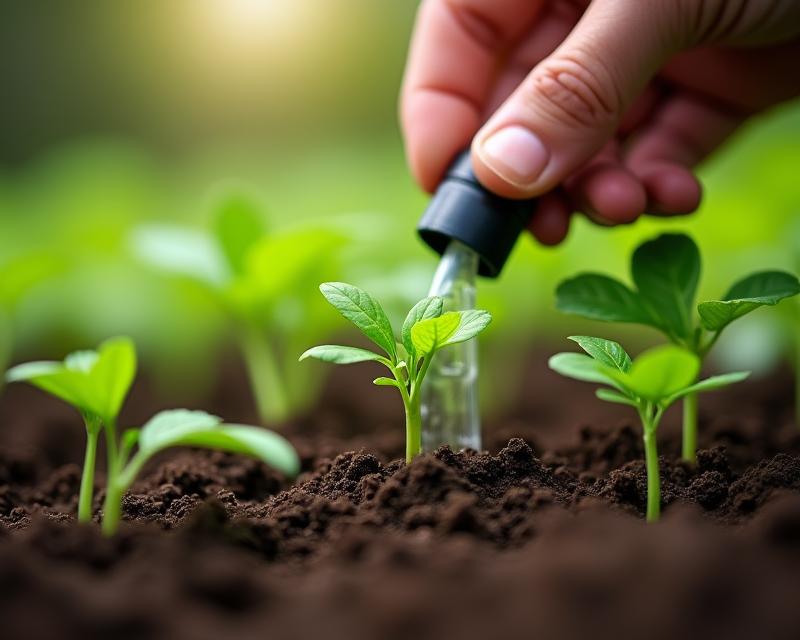Salt Shock: Fertilizer Mistakes to Avoid
Publish in Sustainable Farming el 05/07/2025 02:30
Salt Shock: Fertilizer Mistakes to Avoid
Hey everyone! We all want healthy, thriving crops, and using organic fertilizers is a fantastic way to achieve that. But there's a sneaky culprit that can sabotage your efforts: salt buildup in the soil. It’s a common mistake, especially when using popular organic options like seaweed, fish emulsion, and manure. Understanding this issue and how to prevent it is crucial for long-term soil health and crop success.

Organic fertilizers are packed with nutrients, absolutely! But many contain naturally occurring salts. Think of it like this: just because something is 'natural' doesn't automatically mean it's salt-free. Seaweed, for example, is rich in minerals, but it also contains significant amounts of sodium. Fish emulsion, while fantastic for nitrogen, can also contribute to salt accumulation. And while manure is a powerhouse of nutrients, it can also have a high salt index, depending on the animal's diet.
So, what happens when you overdo it with these fertilizers? High salt levels can create a stressful environment for your plants. Plants struggle to absorb water when the soil is too salty, leading to drought stress, stunted growth, and even reduced yields. It can also disrupt the balance of beneficial microbes in the soil, which are essential for nutrient cycling and overall soil health. Over time, this can lead to soil degradation and make it harder to grow anything!
Here's how to avoid the salt shock. First, always read the label carefully and understand the nutrient content, including the potential for salt buildup. Second, test your soil regularly! A soil test will tell you the current salt levels and help you adjust your fertilization strategy accordingly. Third, apply organic fertilizers in smaller, more frequent doses rather than one large application. Watering thoroughly after application can also help leach excess salts away from the root zone. Finally, consider incorporating soil amendments like compost and organic matter to improve soil structure and drainage, which can help flush out excess salts. By being mindful of salt content, you can harness the power of organic fertilizers without harming your precious plants. Happy farming!





